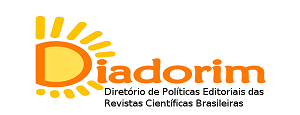VOTO, TERRITÓRIO E CLASSES SOCIAIS NO PROCESSO ELEITORAL DE 2022
o caso de Belém-Pará
DOI:
https://doi.org/10.70860/rtg.v13i31.19323Palavras-chave:
Processo Eleitoral, Voto, Território, Classe, BelémResumo
O artigo discute os resultados do segundo turno do processo eleitoral brasileiro para Presidência da República de 2022, considerando as estratégias políticas, os interesses e as disputas manifestadas no pleito eleitoral no município de Belém, Estado do Pará. Analisa, à luz do debate territorial e de classe, a relação entre votos válidos, território e classes sociais no referido pleito. Para isso, além da revisão bibliográfica e análise documental: (i) construiu banco de dados georreferenciados com informações eleitorais do Tribunal Superior Eleitoral (TSE) e dados socioeconômicos do Instituto Brasileiro de Geografia e Estatística (IBGE); (ii) realizou pesquisa de opinião utilizando amostra de conveniência, estratificada por faixa de renda. Mostra que não houve correspondência direta das classes de alta e média rendas, residentes em áreas com melhor infraestrutura, ao projeto (de direita) da candidatura de Jair Messias Bolsonaro, nem das classes de menor renda, moradoras em áreas periféricas e/ou deficitárias de infraestrutura ao projeto (de esquerda) da candidatura de Luiz Inácio Lula da Silva. Ademais, evidencia que as estratégias discursivas da mídia e das fake news repercutiram de modo e com importância diferenciada nas ações, por classe e segmento do território, no pensamento político e na decisão do voto em Belém.
Referências
ARENDT, Hannah. A condição humana. 10. ed. Rio de Janeiro: Forense Universitária, 2007.
ATLAS BRASIL. Bases do Censo e das UDHs por Regiões Metropolitanas. Disponível em: <http://www.atlasbrasil.org.br/acervo/biblioteca. Acesso em: 30/05/2023.
CASTRO, Iná Elias de. Geografia e política: território, escalas de ação e instituições. Rio de Janeiro: Bertrand Brasil, 2005.
CELLARD, André. A análise documental. In: POUPART, Jean. et al. (org.). A pesquisa qualitativa: enfoques epistemológicos e metodológicos. Petrópolis: Vozes, 2008. p. 295-316.
DARDOT, Pierre et al. A escolha da guerra civil: uma outra história no neoliberalismo. São Paulo: Elefante, 2021.
DIAS, Leila Christina. Redes: emergência e organização. In: CASTRO, Iná Elias de; GOMES, Paulo Cesar da Costa; CORRÊA, Roberto Lobato (org.). Geografia: conceitos e temas. 2. ed. Rio de Janeiro: Bertrand Brasil, 2000. p. 141-162.
FUINI, Lucas labigalini. Teorias sobre o território na geografia brasileira. In: SPOSITO, Eliseu Savério; CLAUDINO, Guilherme dos Santos (org). Teorias na geografia: avaliação crítica do pensamento geográfico. Rio de Janeiro: Consequência, 2020. p. 199-243.
GO Associados. Ranking do saneamento do Instituto Trata Brasil 2022 (SNIS 2020). Disponível em: https://tratabrasil.org.br/wp-content/uploads/2022/09/Relatorio_do_RS_2022.pdf. Acesso em: 03 jun. 2022.
GRAMSCI, Antonio. Poder, Política e Partido. São Paulo: Expressão Popular, 2005.
HAESBAERT. Rogério. O mito da desterritorialização: do “fim dos territórios” à multiterritorialidade. 4. ed. Rio de Janeiro: Bertrand Brasil, 2009.
IBGE. Censo Brasileiro de 2010. Rio de Janeiro: IBGE, 2012.
IBGE. Panorama: Belém, Pará Brasil. Disponível em: https://cidades.ibge.gov.br/brasil/pa/belem/panorama. Acesso em: 11 mai. 2023.
IBGE. Regiões de Influência das Cidades 2018. Rio de Janeiro: IBGE, 2020. Disponível em: <https://www.ibge.gov.br/geociencias/organizacao-do-territorio/redes-e-fluxos-geograficos/15798-regioes-de-influencia-das-cidades.html?=&t=acesso-ao-produto> Acesso em: 31 jul. 2020.
IPEA. Repositório IPEA. Atlas do Desenvolvimento Humano nas Regiões Metropolitanas Brasileiras. Disponível em: https://repositorio.ipea.gov.br/bitstream/11058/8182/1/Atlas%20do%20desenvolvimento%20humano%20nas%20regi%C3%B5es%20metropolitanas%20brasileiras.pdf. Acesso em: 30/05/2023.
RAFFESTIN, Claude. Por uma geografia do poder. São Paulo: Editora Ática, 1993.
RATZEL, Friedrich. Geografia do homem (Antropogeografia). In: MORAES, Antônio Carlos Robert (org.). Ratzel: geografia. São Paulo: Editora Ática, 1990. p. 32-93.
ROCHA, Camilla; SOLANO, Esther. Introdução. In: ROCHA, Camilla; SOLANO, Esther (org.). As direitas nas redes e nas ruas: a crise política no Brasil. São Paulo: Expressão Popular, 2019. p. 7-12.
SACK, Robert David. Human territoriality: its theory and history. Cambridge: Cambridge University Press, 1986.
SANTOS, Milton. A natureza do espaço: técnica e tempo, razão e emoção. 4. ed. São Paulo: EDUSP, 2008.
SANTOS, Milton. O dinheiro e o território. In: SANTOS, Milton; BECKER, Bertha (org.). Territórios, território: ensaios sobre o ordenamento territorial. Rio de Janeiro: Lamparina, 2007. p. 13-21.
SANTOS, Milton. O retorno do território. In: SANTOS, Milton; SOUZA, Maria Adélia; SILVEIRA, Maria Laula (org.). Território: globalização e fragmentação. 4. ed. São Paulo: Hucitec, 1998. p. 15-20.
SONNLEITNER, Willibald. Explorando as dimensões sociais do comportamento político: reflexões teórico-metodológicas sobre geografia eleitoral, cartografia exploratória e abordagens espaciais do voto. Estúdios Sociológicos XXXI: Número extraordinário, 2013.
SOUZA, Marcelo Lopes de. O território: sobre espaço e poder, autonomia e desenvolvimento. In: CASTRO, Iná Elias; GOMES, Paulo Cesar da Costa; CORRÊA, Roberto Lobato (org.). Geografia: conceitos e temas. Rio de Janeiro: Bertrand Brasil, 1995. p. 77-116.
SOUZA, Marcelo Lopes de. Algumas notas sobre a importância do espaço para o desenvolvimento social. Território, Rio de Janeiro, ano 2, n. 3, p. 13-35, jul./dez. 1997.
SOUZA, Marcelo Lopes de. Os conceitos fundamentais da pesquisa sócio-espacial. Rio de Janeiro: Bertrand Brasil, 2013.
TSE. Tribunal Superior Eleitoral. Resultados. Disponível em: <https://sig.tse.jus.br/ords/dwapr/r/seai/sig-eleicao-resultados/maiores-votacoes?p0_turno=2&session=11574682374340>. Acesso em: 30/05/2023.
Downloads
Publicado
Como Citar
Edição
Seção
Licença
Copyright (c) 2024 Revista Tocantinense de Geografia

Este trabalho está licenciado sob uma licença Creative Commons Attribution-NonCommercial-NoDerivatives 4.0 International License.
A Revista Tocantinense de Geografia não remunera nenhum autor pela publicação de seus textos. Os conteúdos dos textos publicados neste periódico são de responsabilidade de seus autores.








.png)












